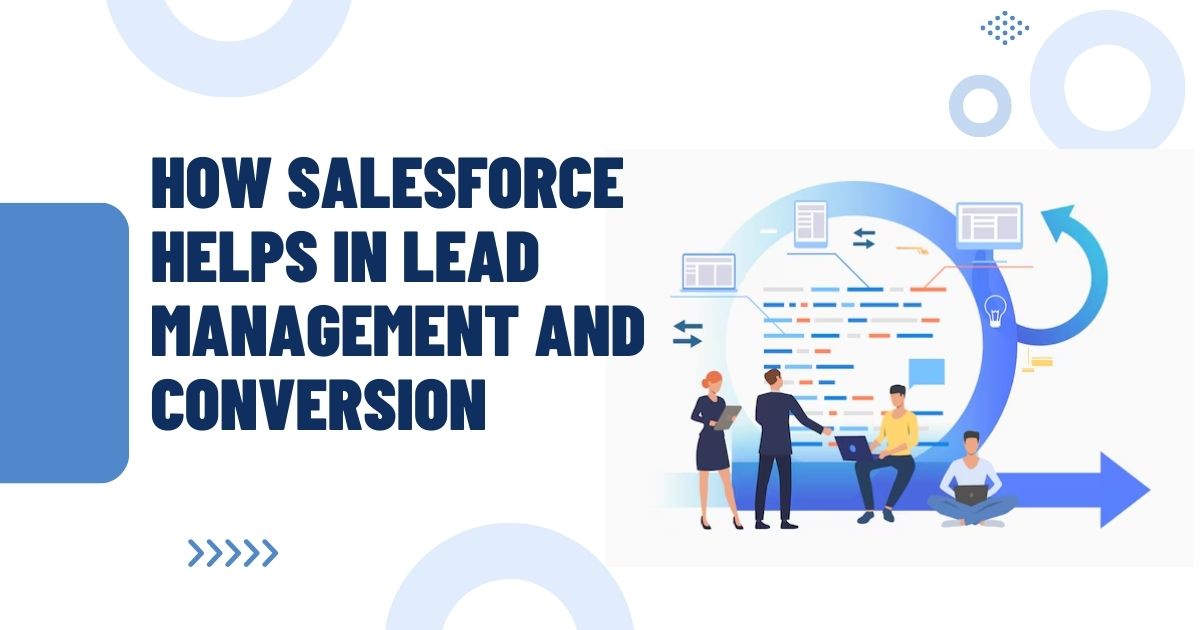
Businesses hoping to turn prospects into devoted clients must practice effective lead management. Salesforce integration services give businesses the means to increase conversion rates, automate important activities, and optimize their lead management process. Salesforce’s AI-driven insights, automation, and smooth interaction with marketing and sales tools enable firms to effectively track, nurture, and turn leads into customers.
What is Lead Management?
The process of attracting, following up with, nurturing, and turning leads—potential consumers—into paying customers is known as lead management. There are several stages involved:
- Lead Capture – Acquiring leads from multiple sources (website forms, social media, email marketing, etc.).
- Lead Tracking – Monitoring lead interactions and engagement.
- Lead Qualification – Assessing leads based on their likelihood to convert.
- Lead Nurturing – Engaging leads with personalized communication.
- Lead Conversion – Turning prospects into customers.
How Salesforce Enhances Lead Management and Conversion
1. Automated Lead Capture
Salesforce enables companies to collect leads from a variety of sources, including social media, websites, email campaigns, and events. Businesses may easily gather and store lead data in Salesforce CRM by utilizing web-to-lead forms and API connectors.
2. Intelligent Lead Scoring and Qualification
Salesforce’s AI-powered Einstein Lead Scoring allows companies to rank leads according to how likely they are to convert. To help sales teams concentrate on high-potential leads, this feature assigns scores based on an analysis of past data, client contacts, and behavioral trends.
3. Seamless Lead Assignment and Routing
Based on preset parameters like region, sector, or business size, Salesforce Lead Assignment Rules automatically assign leads to the appropriate salespeople. This minimizes lead leakage and guarantees timely follow-ups.
4. Personalized Lead Nurturing with Marketing Automation
Businesses can nurture leads using Salesforce Marketing Cloud and Pardot by using focused content, automated follow-ups, and customized email campaigns. AI-powered suggestions, behavior-based triggers, and drip marketing all aid in timely prospect engagement.
5. Enhanced Communication and Engagement
Sales teams can monitor all lead engagements, including emails, phone conversations, and meetings, with Salesforce Sales Cloud. Collaboration and communication run smoothly because of integration with programs like Google Workspace, Microsoft Teams, and Slack.
6. Sales Pipeline Management
Sales teams can monitor lead progress, spot bottlenecks, and improve tactics for increased conversions with the use of Salesforce’s configurable dashboards, which offer a comprehensive picture of the sales pipeline.
7. AI-Powered Insights for Better Decision-Making
Salesforce Einstein Analytics offers up-to-date information on sales patterns, lead behavior, and conversion rates. Predictive analytics can help businesses improve decision-making and hone their sales tactics.
8. Mobile Accessibility for On-the-Go Lead Management
Sales representatives can engage with prospects, change records, and access lead data from any location with the Salesforce Mobile App, which guarantees smooth lead management even when working remotely.
9. Seamless Integration with Third-Party Applications
Salesforce integrates with a wide range of third-party applications, including:
- Google Ads & Facebook Ads – Capturing leads from paid campaigns.
- HubSpot & Marketo – Advanced lead nurturing.
- Zendesk & ServiceNow – Enhancing customer support post-conversion.
10. Automated Lead Follow-Ups and Task Reminders
Businesses can automate task reminders, follow-up emails, and lead status updates with Salesforce Process Builder and Flow. This increases conversion efficiency and guarantees that no lead is overlooked.
Conclusion
Salesforce’s automation, AI-powered analytics, and smooth interaction with marketing and sales tools transform lead management. Salesforce implementation services help businesses increase revenue and efficiency by optimizing their lead capture, qualification, nurturing, and conversion processes. Using Salesforce for lead management guarantees a smooth and successful sales process, which propels long-term success for businesses of all sizes.